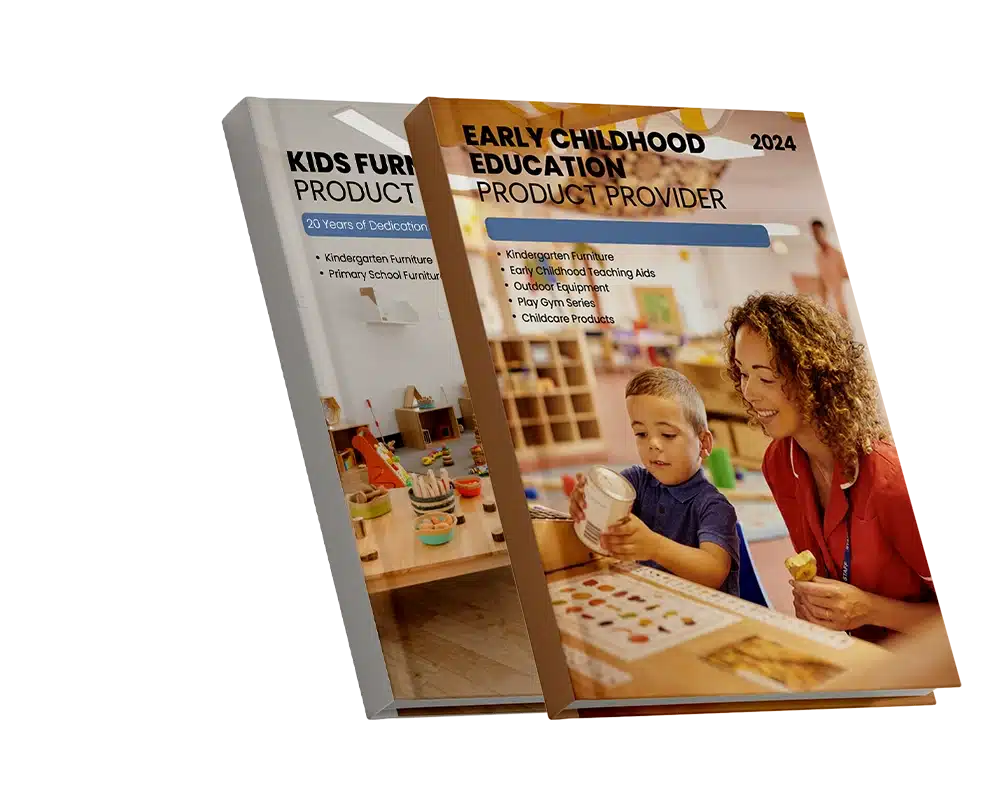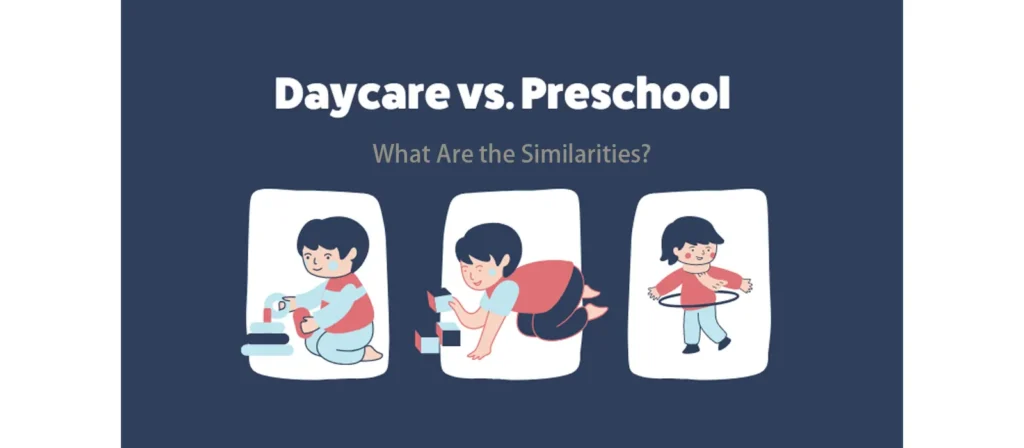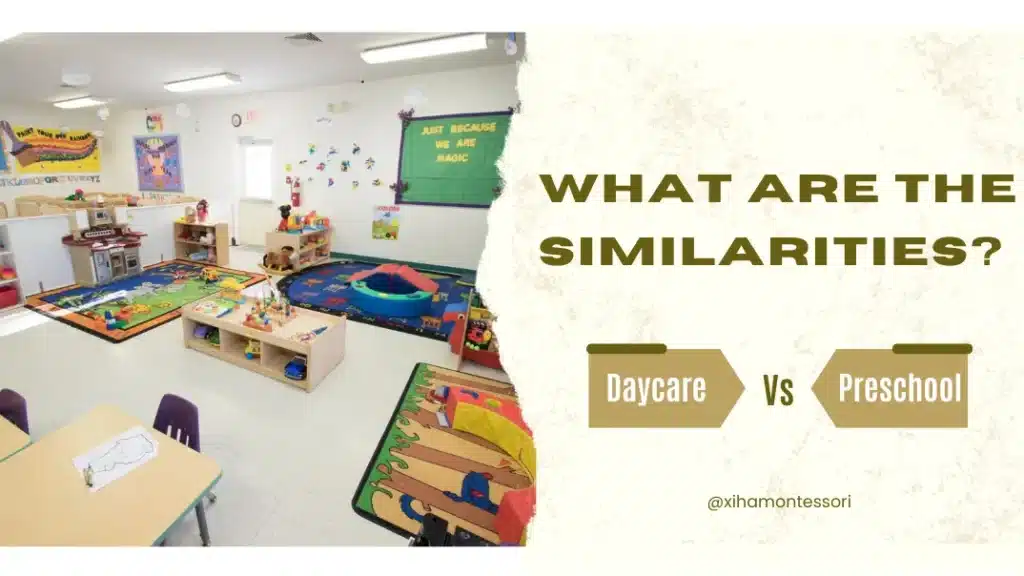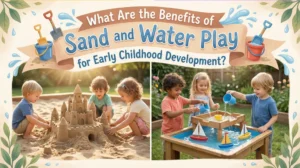Choosing between daycare vs preschool can be overwhelming, especially when you’re unsure about the differences between each. As a parent or caregiver, understanding the differences between these options is crucial to making the right decision for your child’s early development. Both options offer care and early childhood education but cater to different needs and age groups.
Daycare provides flexible care for a broader age range, while preschools focus on early education and preparing children for kindergarten. Whether comparing a preschool vs daycare center or considering other options like an in-home daycare vs preschool, it’s important to understand how each environment supports your child.
In this article, I’ll break down everything you need to know about daycare vs. preschool, explaining the key differences, similarities, and pros and cons of each option. Whether you’re looking for full-day care or an educational program to prepare your child for school, this guide will help you make an informed decision.
What is Daycare?
Daycare is a form of childcare that usually serves children from infancy through toddlerhood, although some daycare centers also accommodate older children. Parents often rely on daycare for full-time care during work hours, as most daycare centers offer longer than preschools. Daycare classrooms vs preschool classrooms tend to be more flexible, and children of various ages are often grouped. Activities are generally centered around basic care, social play, and, sometimes, early learning activities.
If you compare home daycare vs preschool, you’ll notice that home daycares are usually smaller, more intimate settings where caregivers provide more personalized care. This can be beneficial for infants and younger children who need more attention.
Daycares do not typically follow a formal curriculum, but that doesn’t mean children don’t learn. Many daycare centers offer storytime, arts and crafts, and outdoor play to stimulate development. However, the focus is more on caregiving and supervision than education.

What is Preschool?
Preschool is designed specifically for children aged 3 to 5 years old. It offers a more structured environment focused on early education. What is preschool vs daycare? While daycare focuses on basic care, preschools emphasize learning and development through a curriculum that introduces academic concepts like literacy, numeracy, and social skills. Montessori preschool vs daycare is another option to consider, where Montessori preschools follow a child-led approach to learning, distinct from the more care-oriented daycare environment.
Preschools often have a lower caregiver-to-child ratio, which allows teachers to focus more on individualized learning and development. Preschools are typically open for shorter hours compared to daycare. They run more like a traditional school, with morning and afternoon sessions rather than full-day care.
Key Differences Between Daycare vs. Preschool
When comparing daycare vs preschool, there are several critical differences to consider. These differences affect everything from daily schedules to educational focus and caregiver responsibilities.
1. Daycare vs Preschool: Age Range
Daycare vs preschool requirements differ primarily in the age groups they serve. Daycares typically accept children from infancy (around six weeks old) to 5 years old, whereas preschools generally focus on children aged 3 to 5. The difference between preschool vs daycare here is important, as younger children in daycare need more basic caregiving (diapering, naps, etc.). In contrast, preschools are designed for children ready for more structured learning.
In a daycare vs preschool classroom, you’ll often find mixed-age groups in daycare, whereas preschools tend to group children of the same age. This age grouping allows for targeted learning experiences that align with the developmental milestones of preschool-aged children.
2. Daycare vs Preschool: Educational Content
The daycare vs preschool difference in educational content is significant. Daycares often focus more on providing care and play-based learning, with informal activities centered around social interaction. There is typically no formal curriculum.
In contrast, preschools follow a structured curriculum to prepare children for kindergarten. Activities in preschool might include early reading exercises, counting, shape recognition, and developing fine motor skills. In preschools, teachers are trained to deliver educational content that helps develop cognitive and social skills. When comparing a preschool teacher vs daycare teacher, preschool teachers often hold specialized qualifications in early childhood education, while daycare caregivers may not always have the same level of training.

3. Daycare vs Preschool: Hours and Schedule
The schedule in a daycare vs preschool program is another key difference. Daycares generally offer more flexible hours to accommodate working parents, often opening early in the morning and closing late. Some daycare centers even offer care during weekends.
Preschools usually run on a more limited schedule, typically during regular school hours. Programs may last only half a day or a few hours in the morning or afternoon. This can make preschools less convenient for parents who need full-day care. Opening a daycare vs preschool also requires different levels of commitment from caregivers, as daycare demands longer operational hours to meet the needs of working families.
4. Daycare vs Preschool: Environmental Preparation
The learning environment in a daycare classroom vs preschool classroom is different. Daycares tend to have a more relaxed, play-focused environment where children can explore and socialize with minimal structure. Caregivers focus on making sure children are safe, happy, and well-fed.
Preschools create a more school-like environment. Equipped with different preschool furniture, classrooms are divided into activity centers, such as reading, art, and science, where children rotate through different learning stations. The goal is to help children get used to following a routine and prepare them for the structure of elementary school. For example, in a Montessori preschool vs daycare, Montessori schools focus on self-directed learning, where children choose activities based on their interests under the teacher’s guidance.


5. Daycare vs Preschool: Toilet Training
One important factor to consider regarding toilet training is daycare vs. preschool requirements. Many preschools require children to be fully potty trained before enrollment, while most daycares accept children still in diapers or pull-ups. If your child isn’t potty trained, daycare may be the best option until they can transition to a preschool environment.
6. Daycare vs Preschool: Caregiver-to-Child Ratio
Regarding age ratio in preschool vs daycare, daycares often have higher caregiver-to-child ratios, especially in rooms catering to infants and toddlers. This means each caregiver may be responsible for a larger group of children.
Preschools typically have a lower ratio, with fewer children per teacher, allowing for more individualized attention and a more structured approach to learning. This is particularly beneficial in a preschool vs daycare scenario. What’s the difference? A lower ratio allows teachers to focus more on early childhood education and developmental milestones.
7. Daycare vs Preschool: Program Cost
Cost is a significant factor when deciding between preschool vs daycare costs. Daycares are more expensive because they offer full-day, year-round care for children from infancy through preschool. In contrast, preschools generally operate on a part-time schedule, which can make them a more affordable option for families who do not need full-day care.
However, it’s important to note that premium preschools can cost as much as daycare or even more, depending on the program and location. Additionally, the cost of an in-home daycare vs preschool can vary. Home daycares, while often less expensive, may not provide the same educational content as preschools.

Daycare vs Preschool: What Are the Similarities?
Despite the differences between preschools vs daycare, there are several key similarities between these two types of early childhood programs.
1. Socialization Opportunities
Both daycare and preschool provide essential opportunities for socialization. Children learn to interact with peers, share, cooperate, and resolve conflicts. Whether comparing in-home daycare vs preschool or a larger center-based program, these social skills are critical for future success in school and life.
2. Safety and Supervision
Both daycares and preschools prioritize safety. Staff are trained to supervise children, create a secure environment, and ensure children are engaged in age-appropriate activities.
3. Preparation for Kindergarten
Whether you choose a daycare with an educational focus or a structured preschool program, both environments prepare children for kindergarten. The benefits of preschool vs. daycare primarily relate to the level of academic preparation. Still, both options help children become familiar with routines, group activities, and basic social skills they will need as they enter school.

Pros and Cons of Daycare
Pros of Daycare
- Flexible schedule: Daycares offer full-day programs that accommodate the needs of working parents.
- Care for a wide range of ages: Daycares serve infants, toddlers, and preschool-aged children, providing continuity of care.
- Socialization: Children in daycare learn valuable social skills by interacting with peers of different ages.
Cons of Daycare
- Less structured learning: Daycare programs often focus more on basic care and play than on education.
- Higher cost: Since daycares typically offer longer hours, they tend to be more expensive than preschools.
- Mixed-age groups: Children may not always have age-specific learning experiences.
Pros and Cons of Preschool
Pros of Preschool
- Structured curriculum: Preschool programs focus on early literacy, numeracy, and social-emotional development.
- Focused age group: Preschools cater to children aged 3 to 5, ensuring targeted learning experiences.
- Preparation for school: Preschools prepare children for the structure and routines of kindergarten.
Cons of Preschool
- Limited hours: Preschools often run for a few hours daily, making them less convenient for working parents.
- Toilet training requirements: Many preschools require children to be potty trained before enrolling.
- Higher teacher-to-child ratios: In some cases, preschools may have a higher ratio than daycares, although this varies by program.
Tips for Choosing Between Daycare and Preschool
1. Understand Your Child’s Needs
When choosing a preschool vs a daycare, consider your child’s age, developmental needs, and readiness for structured learning. A daycare might be better for infants and toddlers, while a preschool offers a more focused learning environment for 3- to 5-year-olds.
2. Compare Costs
Look closely at the preschool vs daycare cost in your area. While daycares tend to be more expensive due to longer hours, the cost of premium preschools can also add up. Compare prices and decide based on your budget and the hours of care you need.
3. Research the Program’s Focus
Some daycares offer educational activities, but what’s the difference between preschool vs daycare? Preschools often have a more defined curriculum. Consider whether education is a priority for your child’s early years or whether you’re mainly looking for a safe place to care for your child during the day.
Conclusion
Choosing between daycare vs. preschool depends on many factors, including your child’s age, schedule, and educational priorities. Daycares offer flexible, full-day care for a wide range of ages, while preschools focus on preparing children for kindergarten with structured learning activities. When weighing the difference in preschool vs daycare, it’s important to consider the pros and cons of each option to make the best decision for your family.












